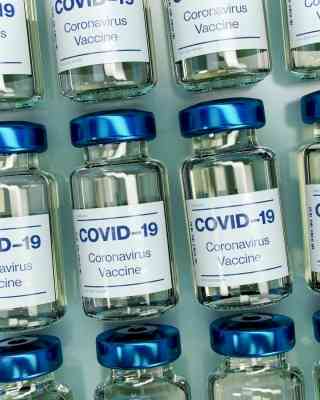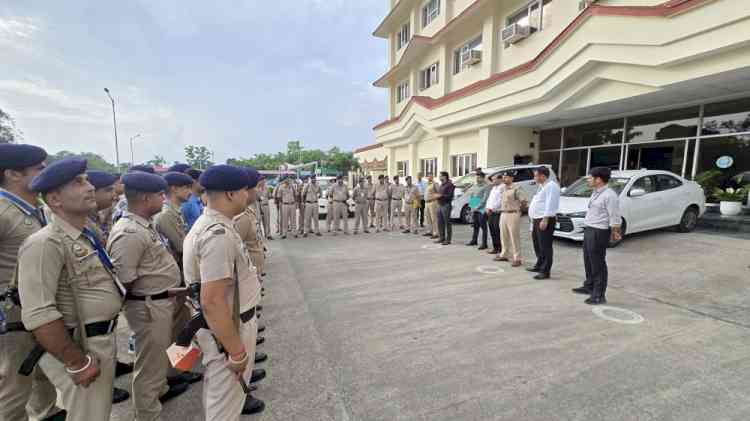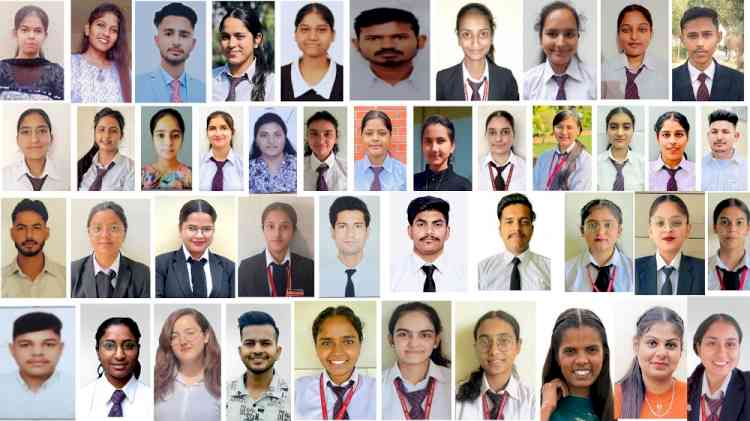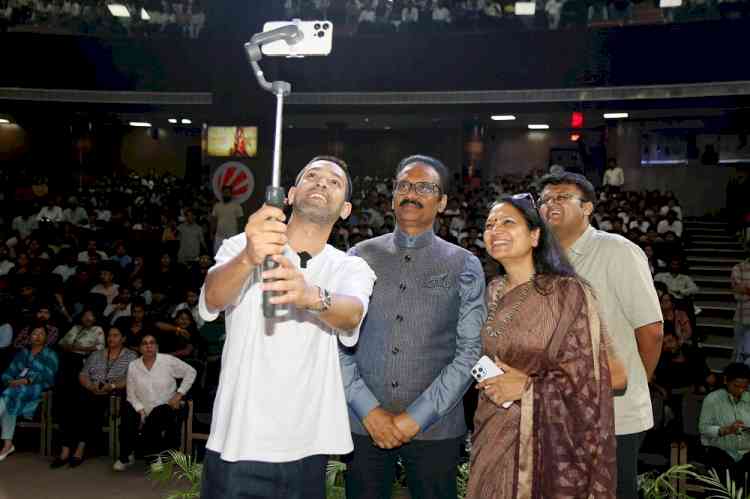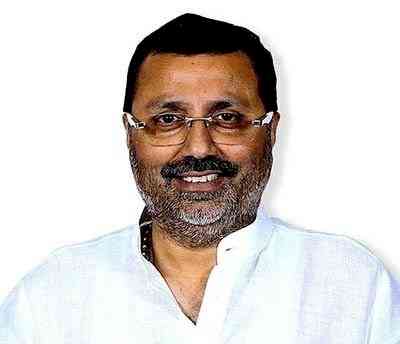Decentralized Wastewater Solution: Need of the Hour for India
There is already an alarming water crisis in India, and to make this worse, water availability per capita is eroding rapidly across the country. A lack of conservation efforts and indiscriminate irrigation practices has rendered over 10% of rural water bodies unusable in India.

There is already an alarming water crisis in India, and to make this worse, water availability per capita is eroding rapidly across the country. A lack of conservation efforts and indiscriminate irrigation practices has rendered over 10% of rural water bodies unusable in India. Moreover, numerous water reservoirs in rural areas are not in use due to salinity, silt, or other environmental issues. According to a Niti Aayog report from 2018, per capita water availability will fall to 1,465 cubic metres by 2025, down from 1,544 cubic metres in 2011. Another report by the Central Pollution Control Board reveals that India will require 1.5 trillion cubic metres of water by 2030.
With approximately 1.412 billion people living in India, sewage or wastewater, an abundant yet untapped resource which is treated as waste, it can be a valuable resource for mitigating water crisis and acute pressure on fresh water resources., treated water reclaimed from sewage can be utilized for non-potable applications or revival of environment. Furthermore, it is also an excellent energy source with incredible fertilizer potential. Recovering water, fertilizer, and energy through wastewater treatment can contribute significantly to circularity and providing alternative water source and other resources apart from solving sanitation, public health and environment issues.
With the water crisis looming in the country, a viable alternative may be to not rely on only centralized approaches but to use models that are different from those based on centralised systems. It is getting difficult for urban local bodies to meet the growing demand for water because of the wrath of global warming, increasing population, unplanned urban growth, demand of water for many applications, inadequate rainfall, depleting water levels, and a lack of water management policies. Thus, India must take immediate action to bridge the gap between supply and demand for water to alleviate this dire situation.
Decentralised Wastewater Treatment- The Last Resort
India generates more than 72 million litres of sewage daily and recycles only 30% of its wastewater. In most cases, sewage is dumped untreated into water bodies, posing severe environmental and health hazards. In Delhi, for example, 90% of urban households have sewage systems that release wastewater straight into the Yamuna River. As a result of this harmful practice, the Yamuna has become one of the most contaminated rivers.
Given the current appalling situation, decentralised wastewater treatment seems the only prudent solution to India's water crisis. The decentralised wastewater treatment process involves collecting, treating, discharging and reusing wastewater from various places, such as households, industrial facilities, and whole communities. In addition to being part of permanent infrastructure, these systems may be integrated with centralised sewage treatment facilities. Furthermore, the decentralised wastewater treatment system is a sensible, economical, and cost-effective option for communities considering installing new wastewater systems or modifying, replacing, and expanding existing ones.
Benefits of Decentralised Wastewater Treatment
A significant benefit of a decentralised wastewater system is that it provides the same safety and reliability as traditional large-scale treatment schemes while offering many additional benefits to communities. Moreover, the multi-functionality of the decentralised water recycling system enables it to function as a sewage management system and a non-drinking water resource.
Water-stressed Indian cities can replicate the success of water-positive cities like Bengaluru and Hyderabad. Bengaluru's decentralised wastewater system is an excellent example in India. As part of an effort to reduce pollution levels in its water bodies caused by untreated wastewater disposal, the environmental regulatory agency started mandating Sewage Treatment Plants (STPs) installations in 2004 for apartment complexes above a specific size. Since then, over 2200 STPs have been installed on-site. On the other hand, 31 decentralised STPs are currently being built in Hyderabad by the Hyderabad Metropolitan Water Supply and Sewerage Board, bringing the city's sewage treatment capacity to 100%.
Similarly, decentralised wastewater treatment systems were introduced in Pune in 2003. These decentralised systems require less maintenance cost and energy inputs than centralised systems.
Decentralised wastewater treatment systems are generally installed at or near the point where the wastewater is generated. In most cases, decentralised wastewater treatment systems are installed near the place where the wastewater is generated. These wastewater treatment solutions can lower operating costs and mitigate health hazards associated with wastewater. This green and sustainable option reduces environmental risks and enhances water availability by reducing pollutants and contaminants. The design, maintenance, and operation of decentralised systems must meet the same standards as any other wastewater treatment system.
The only alternative to India's growing water crisis may be the recycling and reuse of treated wastewater, as freshwater availability remains scarce and costs for delivering good quality water are rising.
India Proactively Addressing the Issue of Water Scarcity
A Memorandum of Cooperation (MoC) was approved by the Union Cabinet, led by Prime Minister Narendra Modi, in April 2022, between the ministries of water resources, river development and Ganga rejuvenation (DoWR, RD&GR), Jal Shakti, and Environment Ministry of Japan for the decentralization of household wastewater disposal. The collaborative effort with Japan for decentralised household wastewater management will aid in efficiently reusing recycled wastewater through the application of Johkasou technology. The joint effort with Japan for decentralised household wastewater management will aid in efficiently reusing recycled wastewater through the application of Johkasou technology.
Additionally, India's National Water Mission launched the Jal Shakti Abhiyan in 2019 to conserve, recharge, and harvest rainwater in 256 water-stressed districts. Furthermore, with water bodies disappearing or becoming unusable, the Centre plans to set up 50,000 Amrit Sarovar across the country by August 15, 2023, for the purpose of conserving water. A single Amrit Sarovar will have a capacity of 10,000 cubic metres and cover approximately one acre. Similarly, the Atal Mission for Rejuvenation and Urban Transformation, launched in 2015, aims to provide water and sewage connections to every household.
Similarly, the Namami Gange Project seeks to restore rivers like the Ojhala and Ganga to their natural state. As part of the project, the first Faecal Sludge Treatment Plant (FSTP) in Uttar Pradesh has been set up in Chunar. Wastes are disposed of using anaerobic techniques that do not require electricity or mechanical equipment to maintain healthy water bodies. Furthermore, the Swachch Bharat Abhiyaan also mandates that cities work towards maintaining sustainable sanitation status by preventing untreated wastewater from making its way onto open spaces. According to the Swachch Bharat Abhiyaan, a city may qualify as Water Plus if it treats wastewater from households, commercial establishments, etc., before releasing it into the environment.
Urban development schemes like the ones mentioned above are crucial for wastewater treatment across India. Furthermore, these wastewater projects promote wastewater reuse for various non-potable purposes, including horticulture, gardening, industrial reuse, and flushing. Additionally, rain-fed agriculture is also receiving a lot of attention at the same time across the country.
Wrapping Up!
Water pollution and scarcity are significant challenges faced by rapidly urbanising cities in India. Considering the current situation, the Central and State governments and stakeholders must push for mainstreaming decentralised water recycling systems. There is, therefore, an immediate need for a national policy mandating the states to assist their cities in allocating space for decentralised facilities to meet the desired urban growth. By doing so, the cities will have ample opportunity to set up decentralised wastewater treatment and recycling plants, which in turn will help alleviate the water scarcity problem to a great extent.
Authored by:
Mr. Kamal Tiwari, CEO & Director, Daiki Axis India


 City Air News
City Air News 
